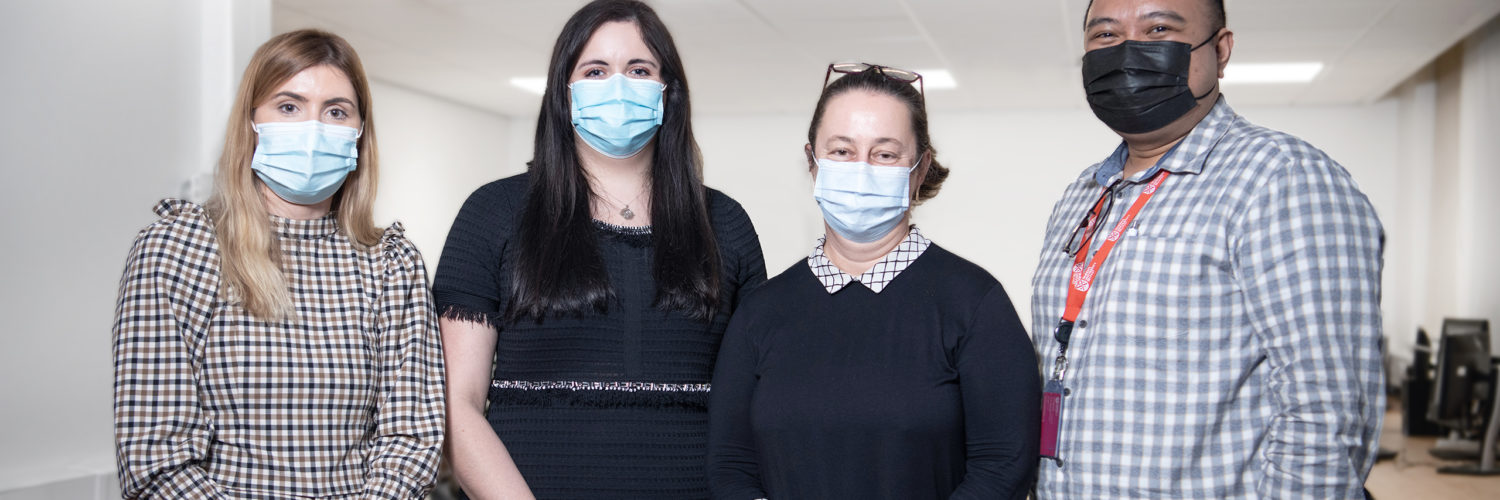
Queen’s University Belfast’s research to prevent blindness globally
Optomed helps Queen’s University Belfast’s researchers to conduct research to prevent blindness globally
A common scenario in eye screening is that the patients need to come to the tabletop cameras. This is a major issue for high-risk patients as well as for patients who have a limited ability to move or live far away from the nearest eye screening clinic. To improve access to eye screening on a global scale, Optomed developed hand-held eye screening cameras that can be taken to wherever the patients are.
Dr. Tunde Peto is an ophthalmologist with a special research interest in chronic blinding diseases. Her expertise has made her aware of the problems related to eye screening and its accessibility. She currently works at the Queen’s University Belfast (QUB) in Ireland. Together with her team, she has been working on finding a way to reach all people that need eye screening irrespective of where they are geographically.
– Traditional eye screening cameras are quite vulnerable to breakage if they are moved too often. We wanted to find cameras that could be used in different locations and enable us to reach groups that are otherwise hard to reach, Peto explains.
Once they started to use Optomed’s retinal handheld fundus cameras, they have been able to reach groups that have previously been hard to reach.
– Currently, we can use the cameras with populations who need to attend dialysis three times a week, or people who are in prison or confined to a care home, she continues.
Regular eye screening for people in dialysis
Their most recent use for Optomed’s cameras has been to do eye screening to people in six dialysis clinics within Northern Ireland.
– Many patients who attend these clinics do not attend their diabetic eye screening. Furthermore, some of them are on stretchers and could not even reach tabletop cameras, says Ms. Laura Cushley, PhD Student, Navisight Study, QUB.
To be able to get their eyes screened, the team brought in the retinal handheld fundus camera.
– The Optomed camera has enabled us to do eye screening to patients that have otherwise been hard to reach, she continues.
International projects help prevent blindness globally
Even though the team is based in Ireland, they carry out research and eye screening in the Philippines and in Tanzania.
– In the Philippine project, we are using Optomed’s cameras to screen for patients with diabetes. We aim to identify people who are at risk of vision loss so that we can intervene earlier to prevent blindness in these patients, explains Dr. Recivall Salongcay, MRC REACH – DR Research Fellow, QUB and Philippine Eye Research Institute.
Optomed also has software with which the images can be reviewed even remotely. In one of their ongoing projects, the measurements are done in Tanzania, but the images are being analyzed at QUB.
– The Optomed cameras can capture a range of images. The quality of the images is really good and we are able to easily review them here at the QUB, says Dr. Katie Curran, Wellcome Trust Fellow, QUB.
See the reference video here.